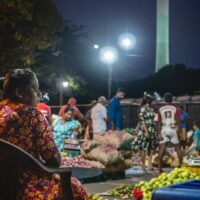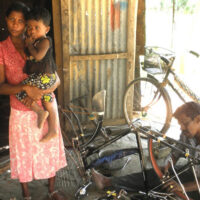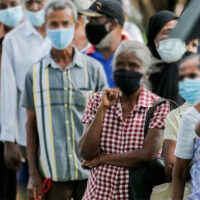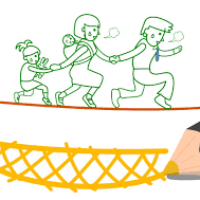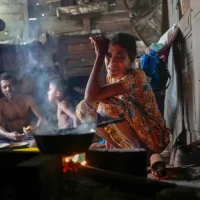Local Government Without Women
By Chulani Kodikara.
Following the 2011 round of local government elections, for the first time in more than two decades, all local authorities (LAs), barring two, comprising Municipal Councils, Urban Councils and Pradeshiya Sabhas, across Sri Lanka have been constituted. LA’s form the lowest tier of elected government in Sri Lanka and have a range of functions, from provision of vocational training and recreational facilities to primary health care and solid waste management. In addition, Pradeshiya Sabhas have powers in relation to local level development in terms of Sec. 19 of the Pradeshiya Sabha Act No. 15 of 1987. Their potential to be a force in relation to local development has however always been hampered by the lack of financial powers, skills and capacities; excessive powers of and dependency on the central government; the use of political office to promote narrow interests and instrumentalise LAs, etc.
In this article, however, I focus on women’s under representation in local government as an impediment to local development and also as an indictment of the state’s commitment to gender equality in post war Sri Lanka.
Women in Elected Political Bodies
Women in Sri Lanka won the right to vote in 1931, seventeen years before independence and since then have made rapid progress in relation to health, education and employment. Their human development indicators are considered a model in South Asia and beyond. However, positive socio-economic indicators have not translated into political empowerment and women’s representation in elected political bodies remains abysmally low. Currently, women account for only 5.8% in Parliament, 4.1% in Provincial Councils, and a negligible 2.03 % at local level, which is amongst the lowest in the world, certainly in South Asia (The staggered elections for LAs held between 2008 and 2011 returned 4,466 members for 333 local authorities in the country, of whom only 91 were women).
A shift to an electoral system based on proportional representation in 1989, which elsewhere has generally proven more favourable to women, has not significantly impacted the numbers of women elected over the years. Some political leaders are now claiming that a return to first past the post ward system will increase representation, but there is no evidence to suggest that this will be the case.
A major reason for this under representation is the low number of nominations given to women by the major political parties. Gatekeepers of electoral processes, wielding considerable power to either advance or inhibit women’s representation, political parties have shown a remarkable lack of commitment to recognize women as worthy candidates or work towards strengthening women’s roles as political leaders.
Nomination forms for local government elections do not record the sex/gender of candidates, and therefore, official sex disaggregated data in relation to nominations for local government elections is not available. Nevertheless nominations statistics compiled through a scrutiny of nomination forms indicates that at the 2011 local government elections, nominations for women by the major alliances/parties – the United Peoples Freedom Alliance (UPFA) led by the Sri Lanka Freedom Party (SLFP), the United National Party (UNP) and the Janatha Vimukthi Perumuna (JVP) — ranged from approx. 3.5% to 7%.
An increase in overall nominations for women under the proportional representation system of elections is due to fringe parties and independent groups – who seldom win – filling their lists with women. Major political parties with stronger electoral fortunes do not nominate women in any significant number. As a result, even an overall increase in their nominations does not translate into electoral gains for women.
Patronage Politics and Networks of Exclusion
At the 2011 elections, many women party activists from the SLFP and the UNP, traditionally content to take a back seat and work loyally for their parties, stepped out of the shadows and sought nominations. Nanda, an SLFP activist from Badulla, told me “for years, we have been working to get votes for male candidates. This time we wanted to go canvassing for ourselves.”
Echoing Nanda’s thoughts, Janaki, a fellow party-member from Badulla observed that as soon as men got their nominations, they came to the women for assistance to organize their elections campaigns, but once they won, they didn’t even remember their names. Some women had been preparing for their candidature. Paduma, a long time SLFP activist from Moneragala, not only studied the local government law but observed her LA meetings in order to familiarize herself with its functioning.
Yet many of these women failed to get nominations. There appears to be too much at stake. Political power in Sri Lanka is sustained through elaborate and well-entrenched patron – client relationships from the national to the local levels. These relationships play a central role in the transmission of socio-economic and political benefits, opportunities and positions. Nominations, then, are opportunities to bestow rewards on party loyalists and those with access to power.
To be considered a ‘winnable’ candidate, money and muscle are important, as is the active involvement in maintaining and supporting the chains of patronage between the party and the constituency. Most women lack both money and muscle power and are passive ‘clients’ on the margins of these networks, except if one is a wife, widow or daughter of a politician. Some of the women who failed to secure party nominations came forward to contest as independents. But independents have little chance given the patron – client political culture and dominance of the major parties.
The need for quotas
Evidence from across the world suggests that politics is one of the most difficult spheres for women to enter. Even with strong socio-economic indicators, affirmative action, especially quotas, are often necessary to increase women’s representation in elected political bodies.
Experiences of women applying for nominations for local government elections in Sri Lanka make it even clearer that the only way to address this gender gap in representation is though a legally enforceable quota for women. However, attempts to obtain such a quota in party nominations even at local level have met with stiff resistance from most political parties and the judiciary. This is in stark contrast to global developments, where more than 90 countries now offer some form of affirmative action for women in electoral processes.
After years of lobbying for a mandatory quota for women, the Local Authorities Election Amendment Act 2012 only made provision for a discretionary quota of 25% for women and youth. This provision is far from adequate.
The lack of representation also means a lack of entitlements. As Nanda said to me, “There are certain services provided by local councils that benefit primarily women, such as child care centres, maternity health clinics, etc. When there are no women represented in a local council, such services are rarely prioritized by the male councilors. These issues therefore tend to get postponed or neglected. Women need affirmative action. Women have for too long worked to put men into elected office. It is now time for women to enter politics in their own right and to work for our own victories.”
The paradox of strong development indicators and weak political representation of women is a sign of enduring patriarchy, reinforced by political and judicial elites. The frequent reference to a 2500 year-old culture in which women are already equal—something the present regime parrots —is a fig leaf for patriarchy. No wonder the President can say “domestic violence is only until the rice is cooked” and get away with it.
In essence, far from equality, women in Sri Lanka are entitled only to development as defined by a patriarchal state. When Paduma heard she was not on her party list, she asked “for how long will the men decide where the wells should be even though it is the women who fetch the water?”
Today, we invite Chulani Kodikara, a Senior Researcher at the International Centre for Ethnic Studies in Colombo to address the issue of underrepresentation of women in Sri Lankan local government and its impediment to our country’s progress. Chulani studied law at the University of Colombo, and Development and Governance at IDS, University of Sussex, UK. Her research straddles issues at the intersection of law, feminism, gender and identity politics. She is the author of Muslim Family Law in Sri Lanka (1997), Women and Governance in Sri Lanka (2002, co-authored with Kishali Pinto Jayawardena), and most recently, Only until the Rice is Cooked? The Domestic Violence Act, Familial Ideology and Cultural Narratives in Sri Lanka (2012).
The article was published in The Island
